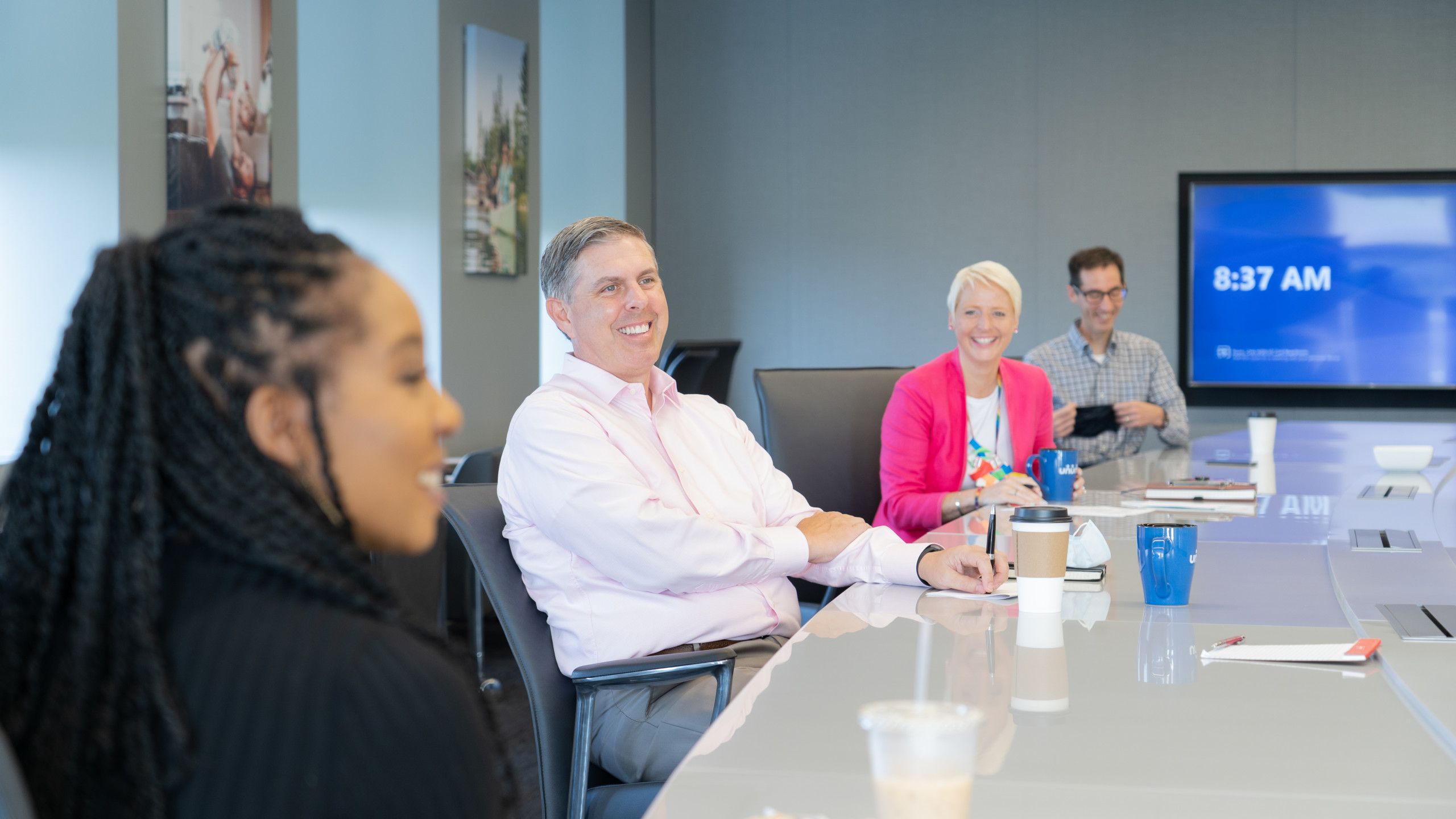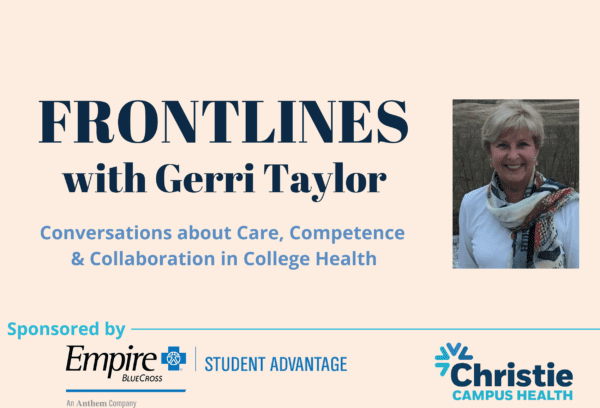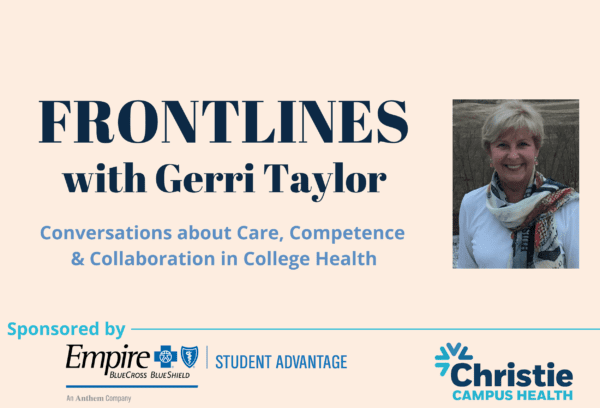There was once a time when talking about mental health at work would be on the “what not to do” list for entry-level employees. But a new generation of recent graduates is taking their determination to normalize the conversation around mental health right into the workforce. The question is: how will corporate America respond?
For Rick McKenney, President & CEO of Unum Group, the willingness of younger workers to talk about mental health is an opportunity to reduce overall stigma. It also helps to further unite Unum’s multi-generational workforce on what is now a major part of its corporate culture. As a Fortune 500 employee benefits company, Unum recognizes the need for mental health offerings and is strengthening both the options available to its own employees and solutions they provide to the market. McKenney isn’t just supportive of the need to emphasize mental health in the workplace – he is an outspoken advocate who takes his message directly to Unum’s 10,000+ employees through regular town halls and in offering a new behavioral health benefit to staff.
With a diverse workforce that spans four countries, McKenney and his leadership team work hard to ensure employees feel a sense of belonging in Unum’s culture – an essential component to fulfilling the company’s purpose of helping the working world thrive throughout life’s moments. Important cornerstones of creating that employee culture are things like DEI (diversity, equity, and inclusion) and ESG (environmental, social, and corporate governance).
We spoke with him in January about mental health at Unum, the intersection of college and corporate life, and how all that has changed since COVID-19.
MCI: How did Unum’s strong emphasis on mental health and wellbeing come about?
RM: We are a company focused solely on the working world and taking care of people at their time of need. Our flagship products, like short- and long-term disability, life insurance, and leave management services all help people and their loved ones with their overall wellbeing at a crucial point in their life. And as things have evolved over the years, but more acutely over the last year, mental health is a very big piece of the puzzle to overall wellbeing.
With our teams, we strive to be a highly empathetic, purpose-driven company, and mental health is an element of someone’s life that we must make sure we are focused on. We also want to give our customers something that allows them to do things a little bit differently than in the past.
The offering we’ve launched is much more proactive and technology enabled. It helps meet people where they are today, because everyone is dealing with mental health differently. By giving people an opportunity to dig into their own behaviors, feelings, and triggers early, they can provide support before someone needs to file a short-term disability claim or take a leave from their job. And we made sure we were focused on that same dynamic for our own employees, who have access to the solution we have out in the market. I think it’s important they see that the leadership of Unum understands the value of this customized, proactive approach.
MCI: You talk a lot about the need to reduce stigma. Do you feel you’re making progress here?
RM: We have found the younger generation of our work force is very open and candid on the topic, and because of them, we have all become more open to the discussion of mental health.
I also think the pandemic has raised the stakes for everyone to be much more proactive on this front as managers work with their employees. Team members will often start virtual meetings with “How are you doing today?” and then at a deeper level, “How are you really doing?” I’ve been in corporate meetings where that’s happening and have witnessed the stigma being removed very quickly, which is a good thing for everyone.
More so today than ever before, our younger employees will come to us expecting that we understand and respect if they are not having a good day. That openness has also made it easier for all of our employees to focus on and recognize their own mental health.
MCI: How has COVID affected all of that?
RM: When COVID first hit, our first and most important step was safely getting everyone home and continuing to serve our customers. It was an all-out effort by our teams, which was successful, but I think over time, we started to see what other stressors were created at home, whether it was isolation or caregiving, either of children or taking care of parents. Things like that created a whole new level of stress and change and most employees did a very good job balancing all the new and changing demands placed on them.
As the pandemic evolved and schools and care options normalized, many people were still home. What we found then is that you started to lose some of that connectedness. We have good digital tools but it’s not the same. So, we opened our offices to provide a safe environment for anyone who wants to come in because we realized some people really needed that connection or sometimes a change in venue.
MCI: As a CEO, you’ve made mental health a pillar of your messaging, as you have with important corporate priorities like diversity, equity and inclusion. How important is it that your employees hear this from you?
RM: It is crucial that the employees hear directly from me frequently because I not only set the tone, but I can demonstrate how our thinking evolves. I also believe that CEOs work for their employees, and I spend my day thinking about how I can enable and help others. This involves making sure we’re taking everyone into account, creating that sense of belonging, and thinking about the benefits of diversity on many dimensions. In addition to demographics, the diversity of thought – how people think and interact – is what drives better customer solutions and the best business outcomes.
MCI: This may start at the top, but do you find you have to reinforce this down the line?
RM: We have great leaders and managers, all committed to our corporate values. It’s ingrained in our company culture. Also, because of technology, I have many more opportunities to get in front of the employee base so they can hear things firsthand. You don’t have to cascade communications by word of mouth and hope people get the message. There’s no question in a live feed what is on your mind and what is important, and it helps reinforce our commitment.
MCI: Students who have and will become your entry-level employees report alarming rates of anxiety and depression and have been very used to seeking help for their issues. What are you seeing on your end among the recent graduates that you hire?
RM: More so today than ever before, our younger employees will come to us expecting that we understand and respect if they are not having a good day. That openness has also made it easier for all of our employees to focus on and recognize their own mental health. We’ve just made it an open conversation. It’s a very positive thing for corporate cultures to incorporate new ways that may be uncomfortable, or sometimes different, because oftentimes those differences reflect the world around us.
Like others, our workforce is multi-generational, with many of our new hires from different generations. We have long-tenured employees and new hires who all need to partner together to serve our customers. As an employee benefits provider, we also think about how benefits need to support individuals across the generational spectrum.
MCI: We’re thinking about how colleges can do a better job of readying their graduates for work while corporations can receive them in a way that allows them to continue to develop and thrive. Do you have any thoughts on that?
RM: We do a lot of college recruitment, and for us, it is really about alignment. At our company, we’re serving people at some of the most challenging times of their lives. While some of the groundwork they get in college prepares them technically or intellectually, it takes a very human element to provide support and empathy to our customers who may be struggling. I think colleges are doing a better job of going beyond the curriculum to look at leadership, service, and extracurriculars to gain that emotional intelligence, too. Even our more technical or support roles anchor to our corporate purpose, which helps drive and motivate our employees towards a greater goal.
MCI: Speaking of people thriving, you’ve done a lot of work on diversity, equity, and inclusion, which of course is a component of mental health. Can you talk a bit about that work?
RM: It’s work that is paramount to who we are. One of our key tenets is “An Appreciation for Differences.” We want people to bring their whole selves to work every day and to know that they will be appreciated and can reach their full potential. To create that sense of belonging – that sense that you are welcome here – is something that is critical for any business. Once you have people bringing their full self, they will be able to influence how we best serve our customers and, with their teammates, will be able to develop more creative and comprehensive business solutions.




